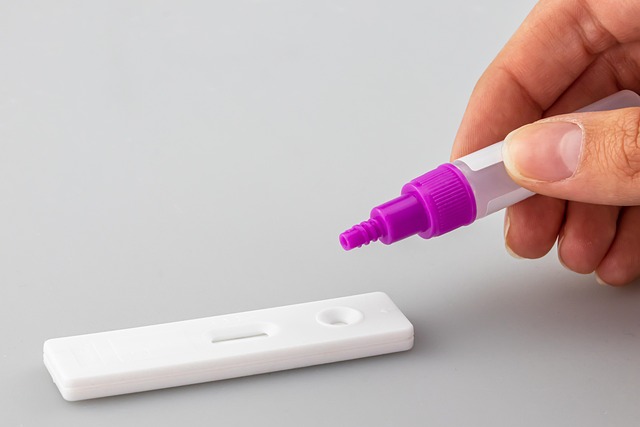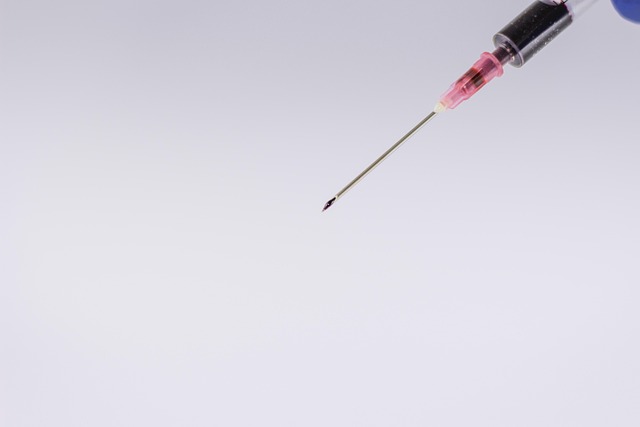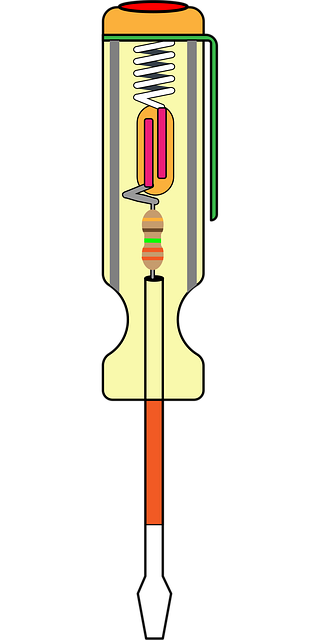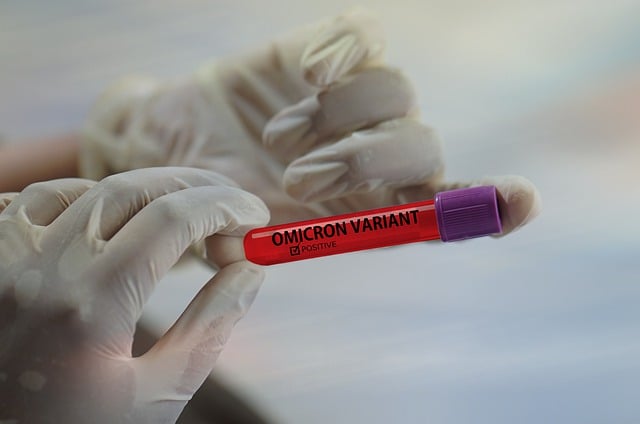Early detection of thyroid issues is crucial for overall health. Comprehensive thyroid testing goes beyond standard blood work to identify subtle conditions like hypothyroidism and hyperthyroidism. Growing awareness empowers individuals to proactively discuss these tests with healthcare providers, leading to accurate diagnoses and personalized treatment plans based on detailed test results interpretation.
Low thyroid function can manifest through a range of subtle symptoms, often overlooked but significantly impacting overall health. From fatigue and weight gain to hair loss and depression, recognizing these signs is crucial for early intervention. While traditional testing methods exist, they may not always provide a complete picture. Explore advanced comprehensive thyroid testing to uncover underlying imbalances. Interpret results with your healthcare provider to tailor a treatment plan, revitalizing your well-being.
- Recognize Common Thyroid Symptoms
- Understand Traditional Testing Methods
- Explore Advanced Comprehensive Testing
- Interpret Results and Discuss With Healthcare Provider
Recognize Common Thyroid Symptoms

Many people overlook the subtle signs their body is sending, but recognizing common thyroid symptoms can be a game-changer in maintaining optimal health. The thyroid gland, often referred to as the body’s metabolic regulator, plays a pivotal role in numerous physiological processes. When it doesn’t function correctly, it can lead to a range of issues, with symptoms that may initially seem unrelated.
One of the most common indicators of thyroid problems is fatigue and low energy levels. Feeling constantly drained, even after adequate rest, could be a red flag. Additionally, changes in weight, both unexpected gains or losses, are worth investigating. A slow metabolism, often associated with underactive thyroid (hypothyroidism), can result in increased hunger despite eating the same amount. Other signs include dry skin, hair loss, and sensitive or cold hands and feet, indicating that your body may not be producing enough heat. A comprehensive thyroid testing regimen, which includes a thyroid blood test, is crucial for identifying these subtle changes and determining if they fall outside the normal thyroid function range.
Understand Traditional Testing Methods

Understanding traditional testing methods for the thyroid involves familiarizing yourself with common procedures used to diagnose conditions like hypothyroidism and hyperthyroidism. Comprehensive thyroid testing typically includes a blood panel that measures levels of thyroxine (T4), triiodothyronine (T3), and thyroid-stimulating hormone (TSH). These hormones play crucial roles in regulating metabolism, making their levels critical indicators of thyroid health.
As part of the traveler’s guide to thyroid care, knowing how to test thyroid function is essential. Global thyroid awareness campaigns have emphasized the importance of early detection and treatment, highlighting that subtle changes in TSH, T4, and T3 can signal underlying issues. This knowledge empowers individuals to take proactive steps towards managing their thyroid health, ensuring optimal functioning for overall well-being.
Explore Advanced Comprehensive Testing

In addition to standard blood tests that measure TSH (thyroid-stimulating hormone), T3, and T4 levels, exploring advanced comprehensive thyroid testing can offer a more nuanced understanding of your thyroid health. These tests go beyond basic markers, delving into specific antibodies, hormone receptors, and other factors that contribute to thyroid function. Comprehensive thyroid testing is particularly valuable for individuals experiencing subtle or non-classic symptoms of hypothyroidism or hyperthyroidism, as it allows for a more precise diagnosis and tailored treatment plan.
Global thyroid awareness campaigns have played a crucial role in increasing public knowledge about thyroid conditions. By raising awareness, these initiatives encourage people to recognize symptoms like fatigue, weight gain related to hypothyroidism (or unexpected weight loss with hyperthyroidism), changes in menstrual cycles, and increased susceptibility to cold or dry skin. Armed with this knowledge, individuals can initiate conversations with their healthcare providers about performing advanced comprehensive thyroid testing for a more holistic assessment of their thyroid health.
Interpret Results and Discuss With Healthcare Provider

After completing a comprehensive thyroid testing regimen, it’s crucial to interpret the results accurately. This involves understanding the reference ranges provided by the laboratory and comparing your levels against these norms. For instance, a TSH (Thyroid Stimulating Hormone) level in the high-normal range might indicate mild hypothyroidism, whereas significantly elevated TSH could suggest more severe underactive thyroid.
Once you have interpreted the results, schedule a discussion with your healthcare provider. They can explain what the findings mean for your health, address any concerns, and help determine the next steps. Your doctor may recommend repeat testing over time to monitor changes in thyroid function or suggest specific treatments if high TSH levels are caused by conditions like Hashimoto’s thyroiditis. Remember, proper interpretation and follow-up ensure effective management of thyroid-related issues.
Understanding and recognizing thyroid symptoms is the first step towards optimal health. While traditional testing methods are a good starting point, exploring advanced comprehensive thyroid testing can provide a more detailed picture of your thyroid function. By interpreting results in consultation with your healthcare provider, you can make informed decisions to support your overall well-being. Remember, comprehensive thyroid testing goes beyond basic markers, offering insights into various aspects of thyroid health.
